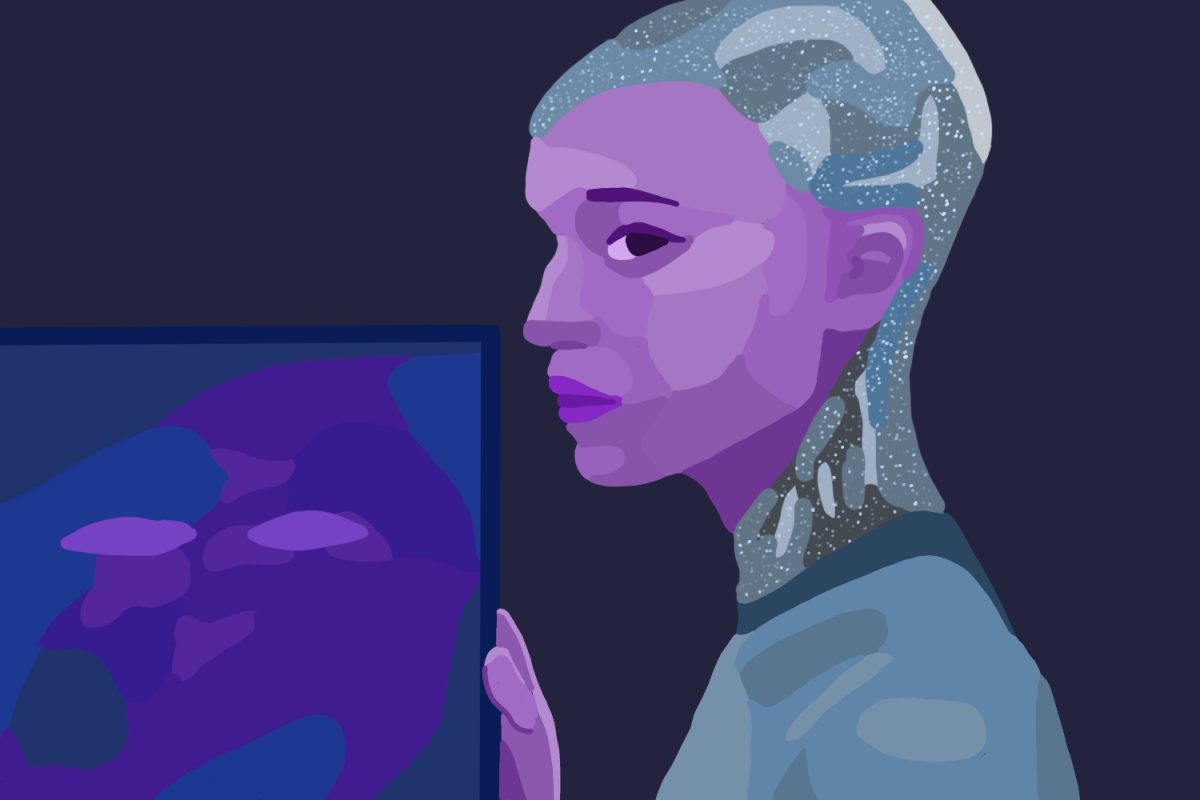“A god from a machine.” That’s the translation for the iconic phrase “deus ex machina,” which the title for Alex Garland’s 2015 science fiction film “Ex Machina” fittingly references. The phrase evokes images of a powerful being birthed from a mechanical womb — the perfect description of Ava (Alicia Vikander). In “Ex Machina,” she’s the world’s first sentient artificial intelligence created by tech CEO Nathan Bateman (Oscar Isaac), and her arrival raises profound questions about the limits of human morality. Nathan invites Caleb Smith (Domhnall Gleeson), an employee of his, to visit his reclusive compound and test the limits of Ava’s sentience. And so, the stage is set for a meditative film with reflections on human nature and the ethics of technological creation that still ring true 10 years later.
In 2015, AI meant something very different than it does today. The media landscape was filled with humanoid androids and robots, figures that mimicked our physical movements and emotional capacity. Superhero movies featured villains like Ultron in “Avengers: Age of Ultron,” who embody our collective fear that AI would bite the hand that fed it and try to replace humanity. On the opposite side of the spectrum, characters like Samantha in “Her” embody our anticipation that AI might soon be able to express intense, deeply human emotions. Ava was a culmination of these pent-up anxieties — an AI robot who looks like a human, grows more human-like over time and possesses the cognitive capacities of one too. Today, our fears surrounding AI have changed.
Today, specifically in the world of art, AI is feared not in the sense that it will physically and violently replace humanity. Instead, people fear the technology will be used in place of human artists to cut financial corners and remove that unique human touch from our movies and TV shows. The rise of generative AI — the kind that creates new texts, videos, images, etc. based on existing content — has been all but impossible to ignore. Just last year, Garland’s dystopian thriller “Civil War” used AI-generated posters as a part of its marketing campaign. These posters promised war-torn landscapes that simply didn’t appear in the film, a baffling decision and a slap in the face to artists who could have designed original posters. More recently, “The Brutalist” and “Emilia Pérez” came under fire for their use of the AI software Respeecher to perfect Hungarian dialogue and extend an actor’s vocal range, respectively.
The question of AI today is not so much one of robot world domination, as is suggested in “Ex Machina” and the films of the mid-2010s. It’s more a question of the role we should allow AI to play in art. Should we reject any and all use of it despite its growing popularity? In filmmaking, AI could save time with tedious or repetitive technical tasks and allow them more time to spend on the creative, original and imaginative parts of artistry. AI already seems to be on that path — one of service, not replacement — in our wider economy.
This may all seem like one long tangent, but the truth is that “Ex Machina” is a complex movie. On the surface, it’s a look at AI and the ethics behind its creation. But it’s also an allegory for the ways men treat women. Nathan and Caleb are two sides of the same coin. Nathan is the overt misogynist who creates Ava just so he can control her. He values her as long as she respects and is subservient to him. Conversely, Caleb is the nice guy who treats Ava well but only because he believes she has feelings for him. His kindness is conditional, and his reasoning is entirely selfish. This examination of gender structures stands strong and damning in an age where we seem to have a Nathan of our own in our country’s highest office.
Garland once hauntingly described “Ex Machina” as taking place “10 minutes from now.” But, it’s been 10 years and it’s clear a lot has changed. The old humanoid AI robots have given way to a more amorphous generative AI that has crept its way into the film industry. With no signs of AI going away anytime soon, we must grapple with the question of its role in the film industry head-on. But no matter the answer, “Ex Machina” will surely remain relevant for 10 more years to come.
Contact Leo Field at [email protected].


























































































































































